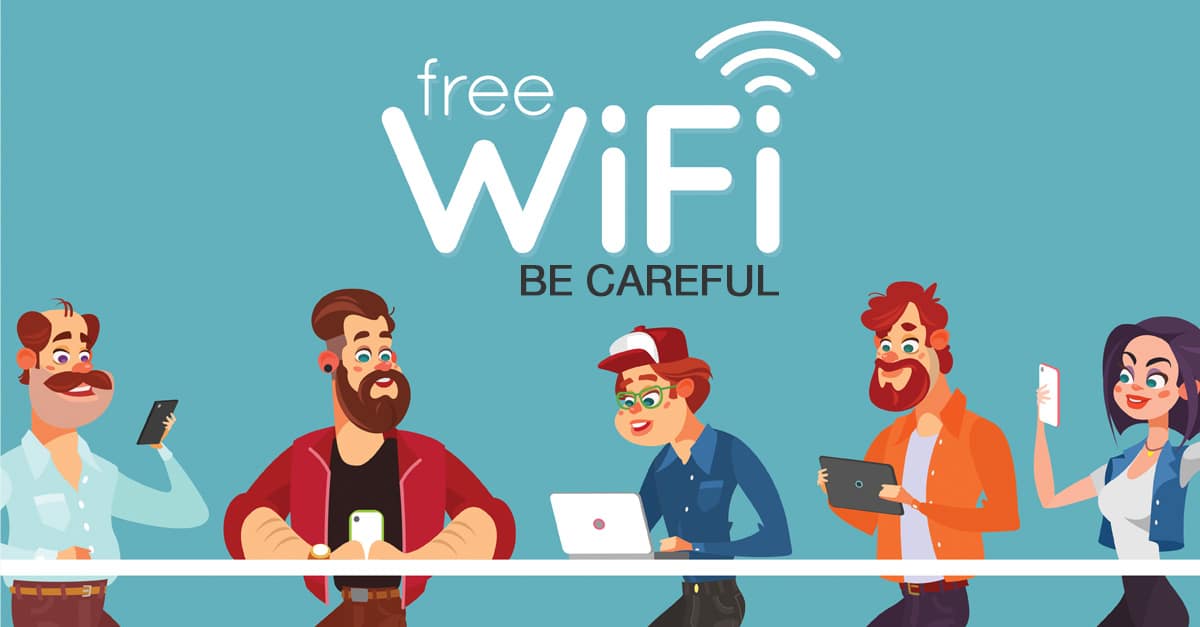Be careful about using public Wi-Fi

Would you like some free Wi-Fi with your coffee?
Odds are, the last time you were at a coffee shop, you thought, “I’m paying for the coffee – I might as well use the free Wi-Fi.”
There’s no doubt that Wireless Internet, or Wi-Fi, connections are everyone’s favourite free service. However, using free, public Wi-Fi is dangerous, especially for a business professional.
Here’s why:
1. Anyone can access it
Unless a Wi-Fi router is protected with a passcode, it’s likely that the network is vulnerable to hacking attacks and other threats. Even with a passcode, if the router isn’t configured properly, it’s still vulnerable. When anyone can access a Wi-Fi signal, nothing stops a hacker from connecting to the router and spying on others who are connected to the network.
It’s worth mentioning that, although we use the term “hacker,” even a mischievous child with a bit of curiosity could access your files if the Wi-Fi connection isn’t secure.
2. It’s highly used
The more people who use a Wi-Fi connection, the more likely it is that one of them will be a hacker. Hackers know that free Wi-Fi draws a crowd, so they use the service themselves for the convenience of finding many new targets at once.
3. Data isn’t encrypted
Quite often, open and free Wi-Fi networks do not bother with encrypting your data. Encryption is an extra layer of protection for data that’s sent to, and received from, a Wi-Fi connection. When routers have encryption, hackers have a harder time stealing data. No encryption? No protection.
What You Can Do
While unsecured public Wi-Fi routers aren’t something that you have direct control over, you can be cautious about using them when you’re out and about. There are three best practices for avoiding a potentially risky Wi-Fi network in a public place:
- Only connect to networks that require passwords, keeping in mind that even a password-protected network does not mean your data is safe. If the information you’re accessing is sensitive, personal or confidential, you may wish to wait to log in until you know you’re using a secure connection.
- You can prevent hackers from accessing your phones and devices by checking their settings and ensuring they don’t automatically connect to new Wi-Fi networks. A connected phone is a connected phone whether or not you’re actively using it.
- If you work remotely, make sure your network administrator sets up your devices to connect to through a VPN to encrypt and secure your data.
If your business needs its employees to stay connected while on the move, contact Michael Anderson. We’ll help your team understand the best way to work around potentially threatening situations.
Learn more about our 365Care+ solution.




